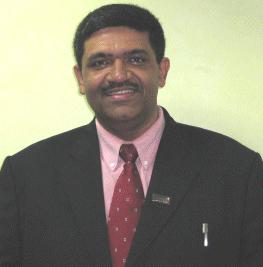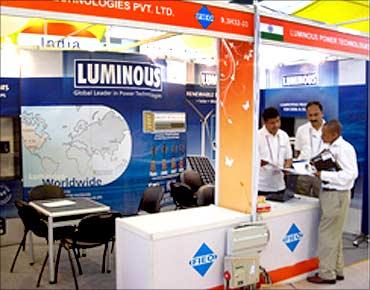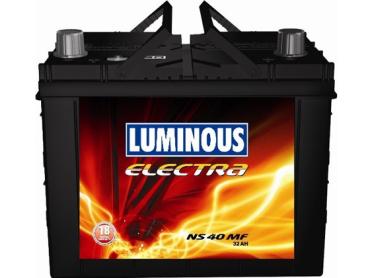 | « Back to article | Print this article |
From Rs 40K to Rs 1,866 cr: Success story of Luminous' Malhotra
When Rakesh Malhotra started to build a business for himself in 1988, he had five years of work experience, all of Rs. 40,000 in savings and an engineering degree.
Over the years, he built a brand called Luminous that first came out with power back-ups for computers and then invertors for homes in 1994.
Now, it is also into other businesses like telecommunication infrastructure, knowledge process outsourcing and renewable energy.
It took a good 18 years for Luminous Power Technologies to make its first Rs. 100 crore (Rs. 1 billion), but in the next five years its turnover shot past Rs 1,100 crore (Rs. 11 billion).
Click NEXT to read more...
From Rs 40K to Rs 1,866 cr: Success story of Luminous' Malhotra
The son of a civil servant, Malhotra grew up in Delhi and Punjab, and studied at Delhi Cantonment's Kendriya Vidyalaya for the most part.
'Business' was not something that he inherited. After securing an engineering degree in electronics and telecommunication from Jadavpur University in West Bengal, he joined the Tata group's Nelco in 1983.
Click NEXT to read more...
From Rs 40K to Rs 1,866 cr: Success story of Luminous' Malhotra
He later worked with Mitsui and Siemens but by 1988, when Malhotra had turned 26, he had developed a strong urge to turn entrepreneur.
"One wanted to create something but felt limited by the profession's set-up," he says.
Three things worked for him - good timing, luck and dedication.
Along the way, Malhotra's childhood associates Navnit Kapoor and Sunil Bhalla joined him as co-promoters.
Soon came in private equity investors and the financial institutions. CLSA Capital put in some Rs. 83 crore (Rs. 830 million) in 2007, and in four years, Schneider has made an entry.
Click NEXT to read more...
From Rs 40K to Rs 1,866 cr: Success story of Luminous' Malhotra
Schneider's coming will also bring in best practices.
Though Malhotra, chairman and chief executive officer, says that the company's operations will remain independent, the focus will be to build from where it is today.
"It is a well-structured organisation with a professional workforce. I was on the back seat already," he says.
Retirement, however, is not on the horizon.
"We (promoters) are in our forties and have a lot to do."
Click NEXT to read more...
From Rs 40K to Rs 1,866 cr: Success story of Luminous' Malhotra
In the true spirit of entrepreneurship, Malhotra says he wants to be in a place where things are getting created.
Creating a business, incubating it, and then cashing in on the value created seems to be the way modern entrepreneurs are working.
"In older times, people were confused about management and ownership but now change in shareholding does not impact continuity of management."
Indian businesses are maturing to a level where management is not governed by the shareholding, he says.
For Malhotra, whose father did not want him to become a businessman yet allowed his life's savings to be leveraged for his (the son's) loans, it is innovation time again.





